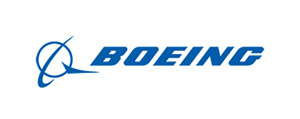Leeham News and Analysis
There's more to real news than a news release.
Etihad clears the decks
By Bjorn Fehrm
August 2, 2017, ©. Leeham Co: “Etihad, where to now?” was our headline on our May review of the Gulf airline. The 2016 revenue and earnings were not clear at the time.
Etihad group has now released the results, with a group loss of $1.9bn on revenues of $8.4bn. This is a shortfall of almost a quarter of the turnover, a dramatic change from a profit of $259m the year before. . Read more
. Read more
How Boeing pays back the 787 debts
By Bjorn Fehrm
Subscription Required
Introduction
July 27, 2017, © Leeham Co.: Boeing held its 1H2017 call yesterday, giving further information on how the 787 deferred costs decline. The payback in 2Q2017 was $16m per aircraft.
Boeing needed to achieve a $36m per-plane reduction, based on our analysis, to not increase the payback amount per aircraft for the remaining aircraft in the current accounting block.
The $16m is still a low rate, although better than the $11m 1Q2017, given that the remaining $26.5bn deferred production costs must be amortized over the Program accounting’s remaining 735 units of a 1,300 units block. The key to amortizing the costs is the different margins of the 787 variants. We compare costs and revenue of the 787-, -9 and -10 to understand the payback margins better.
The key to amortizing the costs is the different margins of the 787 variants. We compare costs and revenue of the 787-, -9 and -10 to understand the payback margins better.
Summary:
- Program accounting means deferred production costs shall be nil at the end of the accounting block.
- Right now, there is $26.5bn to amortize and not many aircraft left that can pay the sum.
- The key to a plausible payback scenario is the payback margins of the different 787s.
- We analyze the margins through modeling of net revenue and unit costs for the 787 variants.
Mid-year production update at Airbus
July 27, 2017, © Leeham Co.: It’s mid-way through 2017 and LNC is taking its second look at production and delivery stream flows for the Big Four airframe manufacturers.
We examined Boeing Monday in advance of its earnings call Wednesday. Today we look at Airbus in advance of its earnings call today. We look at Bombardier and Embraer next Monday.
We use the Airfinance Journal Fleet Tracker as the basis for our exam.
Boeing assumes 787 rate goes to 14/mo, but still working on it

Dennis Muilenburg. Photo via Google.
July 26, 2017, © Leeham Co.: Boeing posted strong earnings in the second quarter, with officials seeing continued strong demand, a recovering cargo market and strong commitment to returning cash to shareholders.
Financial guidance for the year was boosted. Boeing assumes that it will go to a production rate of 14/mo for the 787 program but there is still work to do to obtain the orders.
Boeing 2Q2017 earnings better than expected
July 26, 2017: Boeing reported better-than-expected 2Q2017 earnings today. Initial analyst reaction is below.
The press release is here.
The earnings call is at 10:30 am EDT. The link is here.
Mid-year production/delivery update for Boeing
Subscription required
Introduction
July 24, 2017, © Leeham Co.: Boeing’s 2Q earnings call is Wednesday and analysts will be watching for information about the 787 deferred production costs, potential production rate changes for the 787 and for the 777 Classic.
We looked at the 787 costs last week.
It’s also mid-year and LNC is taking an updated look and production and delivery rate streams for Boeing, Airbus, Bombardier and Embraer. The Airfinance Journal Fleet Tracker is our resource for this report.
We begin with Boeing in advance of its earnings call.
Summary
- A case can be made for taking 737 production rates to 60/mo.
- 777 Classic rates still may need to come down.
- 787 rate increase remains questionable.
Caution overhangs 777X program-(Update)
Update: This story is corrected.
July 21, 2017, © Leeham Co.: Lufthansa Airlines’ indications that it may reduce the order for 20 Boeing 777-9s underscores caution with which the program should be viewed.
Emirates Airline already rescheduled its first deliveries from 2020 to 2021.
The largest customer for the 777X, with 150 orders, EK is now pressured with falling profits, excess capacity and it’s one of three Gulf airlines under attack by the Big Three US carriers for alleged violations of Open Skies pacts.
Boeing 787 payback gap widens
By Bjorn Fehrm
Subscription Required
Introduction
July 20, 2017, © Leeham Co.: The 787 Dreamliner is now on its sixth delivery year, well past half calendar time in the program’s 1,300 unit accounting block (for the explanation of accounting block and program accounting read here).
Within two quarters we also reach half time for deliveries at 650 aircraft. Production cost improvements must now create a margin, so that the $30b deferred costs to date can be amortized by remaining units. Is the margin created? Not so far.
We will know more in a week’s time. Boeing has its 2Q2017 call next week, where the production cost improvements can be monitored through the decline of the $30bn deferred costs. Right now, the decline is at a slow pace.
 Summary:
Summary:
- Program accounting means deferred production costs shall be nil at the end of the accounting block.
- Right now, there is $30bn to amortize and not too many aircraft left that can pay the sum.
- We explore the payback margins necessary to reach a black nil at 1300 units.


